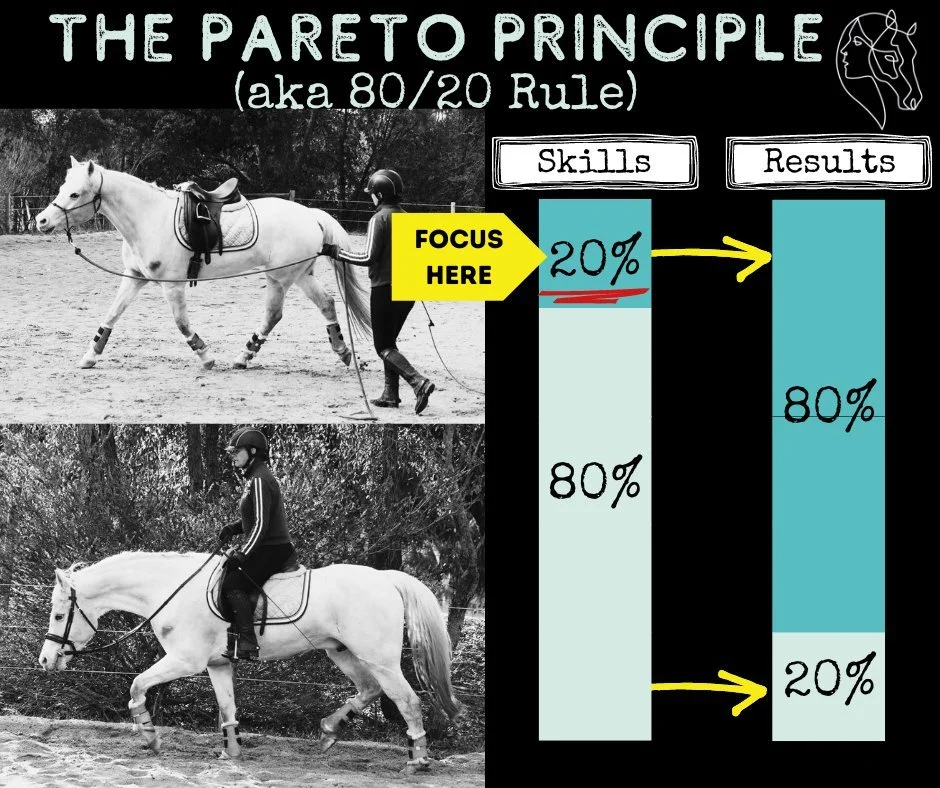the pareto principle
Have you heard of the "Pareto Principle"?
It is a powerful insight for both you and your horse.
The "Pareto Principle", also known as the 80/20 rule suggests that in many situations roughly 80% of the effects come from 20% of the causes.
In practical terms, mastering a critical subset of skills or focusing on key tasks can often yield a disproportionately large payoff. Therefore, identifying and honing that crucial 20% can lead to significant improvements in performance or results.
I use this principle to establish both what I focus on teaching people in regards to how to influence horses. But also what I focus my efforts establishing with horses.
I call the 20% in both the horses "Foundation".
The horse's foundation is like their basic operating system. It has mental, emotional and physical realms to it. It is understanding, confidence and physical gymnastic fitness ability to accept and respond to a rider and their general handling and management. It is the rhythm/relaxation, suppleness and contact sections of the well known training scale or pyramid. It sets the stage to allow for implusion, straightness and collection to be established.
In riders, it is the skills to be able to teaching and influence a horse to develop the foundation.
I worked out that if I can teach a person how to re-start or re-boot as I like to call it, the horses foundation it had this tremendous effect at solving their problems and setting them up to progress their own skills and progress their horse.
Progress was regardless of whether they had a chosen discipline or just wanted to enjoy trail riding.
It gives people this sense of competence at influencing the horse and that sets the stage for them to grow their confidence.
It also does something very important. It sets them up to protect their horse from bad advice or unfortunate situations. This is because the key to building trust in a horse lies in its understanding and confidence in its foundation.
The same can be said for riding position and balance. You need to have a lot of skills to ride well, but if you don't have an independent seat, your ability to positively impact the horse will be compromised.
